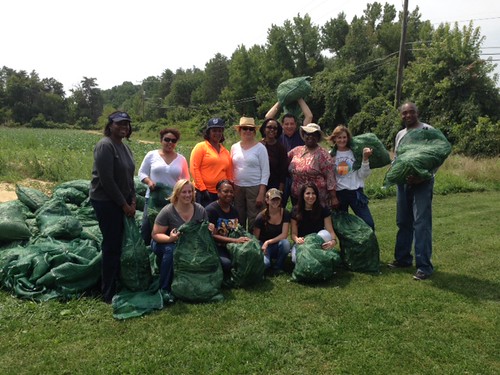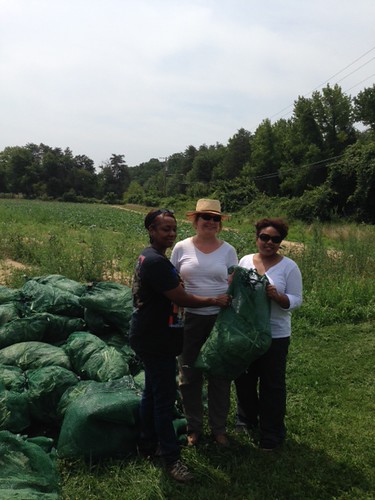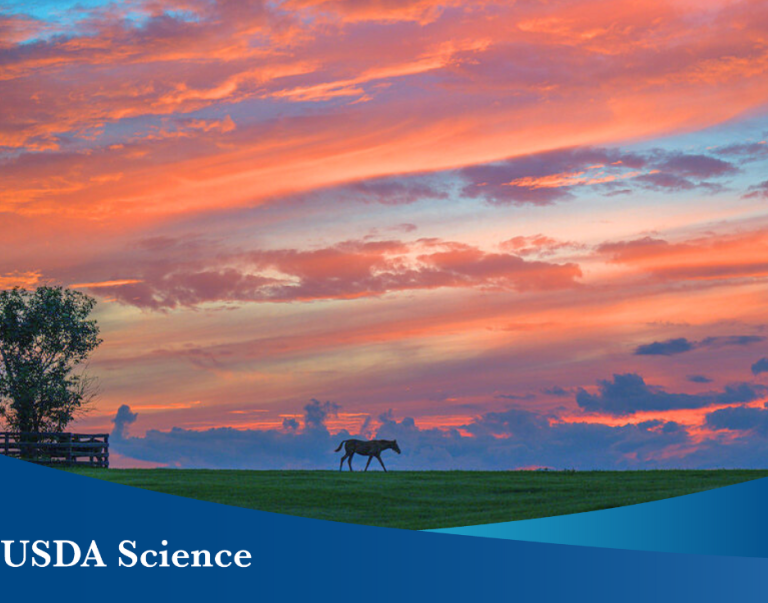
This post is part of the Science Tuesday feature series on the USDA blog. Check back each week as we showcase stories and news from USDA’s rich science and research portfolio.
Most of us were reminded every night to eat the veggies on our childhood dinner plates. And for good reason, too. Veggies are packed with the nutrients that are essential to good health and, as you may already know, greens are nutritional powerhouses. Dark, leafy greens are full of antioxidants like vitamin A, C and E, as well as B vitamins, calcium, iron, protein, fiber and even essential fatty acids. But not everyone is able to adorn their plates with these “edible emeralds.” That’s where a group of federal employees stepped in.
Recently, USDA staff from the Research, Education, and Economics mission area, Animal and Plant Health Inspection Service, Natural Resources Conservation Service, Food Safety and Inspection Service and Food and Nutrition Service spent a day at Miller Farms in Clinton, Maryland, collecting several commercial-sized bags of collard greens as part of an initiative called “Feds Feed Families.” Busily trading recipes and debating cooking techniques as they gathered the greens, the volunteers cleared 12 lengthy rows – three times more than what was expected. Team USDA was off to a great start in the gleaning process.
So how does it work? The Mid-Atlantic Gleaning Network (MAGNET) and similar organizations make agreements with farmers to secure their excess crops after they’ve completed their primary harvesting – crops that would have otherwise been discarded. After the volunteers collect the excess crops at a MAGNET gleaning event, the food is taken to a warehouse where it is cleaned and then sent on to the Capitol Area Food Bank or a similar food kitchen. These organizations then sell the food to local food banks at a discounted price. Finally, the local food banks distribute the food to recipients.
Some gleaning events are different than others. Occasionally, MAGNET pays a local farmer to plant and maintain the crop. Such was the case of the collard greens that our team of volunteers harvested. A portion of land at the New Fellowship Baptist Church in Clinton, Maryland is used by MAGNET specifically for this purpose.
Public service is a rewarding experience that allows us to serve our communities and impact folks in places that many aren’t aware of. This group of public servants enjoyed taking it a step further by spending a cool, sunny Friday morning doing something proactive for Feds Feed Families.



